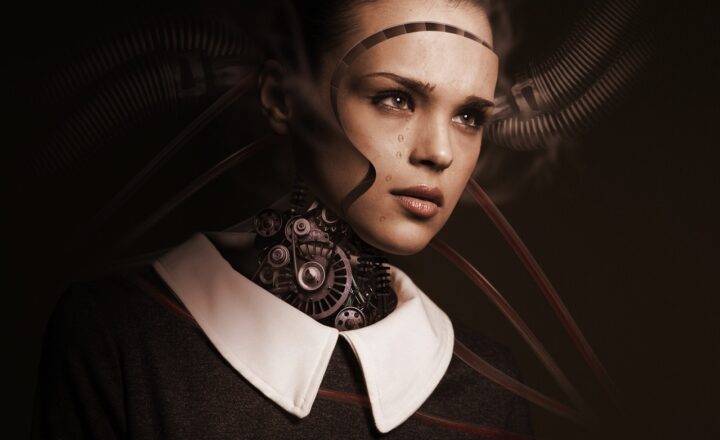
Artificial Intelligence (AI) has evolved from a speculative concept to a transformative force influencing every aspect of our daily lives. As we move deeper into the 21st century, the capabilities of AI systems have expanded dramatically, reshaping industries and redefining the way we interact with technology. This article explores the various ways AI is revolutionizing our daily experiences, from enhancing productivity in the workplace to personalizing our consumer journeys, and even aiding in healthcare.
1. AI in the Workplace: Boosting Productivity and Efficiency
One of the most significant impacts of AI can be witnessed in the workplace. Businesses across various sectors are integrating AI technologies to streamline operations and drive productivity.
Automation of Routine Tasks:
AI-powered systems are capable of handling repetitive tasks such as data entry, scheduling, and inventory management. This automation allows employees to focus their energies on more strategic initiatives, fostering creativity and innovation within teams.
For instance, AI tools like chatbots are increasingly employed in customer service, handling inquiries and resolving issues at any hour of the day, freeing human agents to tackle more complex queries.
Data-Driven Decision Making:
Moreover, AI-driven analytics are providing businesses with insights that were once unfathomable. Organizations can now make informed decisions based on real-time data analysis, predictive modeling, and trend forecasting. This not only enhances operational efficiency but also positions companies to better anticipate market shifts and customer preferences.
As a result, firms that effectively harness AI technology are often a step ahead of competitors who rely solely on traditional methods.
2. AI in Daily Life: Personal Assistants and Smart Homes
In our daily lives, AI is manifesting through smart devices and personal assistants that simplify mundane tasks and enhance convenience.
Smart Home Devices:
From smart thermostats that learn your temperature preferences to security systems that recognize faces, AI is creating homes that are not only more secure but also more energy-efficient. Devices like the Google Nest and Amazon Echo have transformed how we control our living spaces, allowing users to adjust settings and access information with simple voice commands.
Personal Assistants:
Virtual assistants such as Siri, Alexa, and Google Assistant have redefined our interaction with technology. With the capability to set reminders, play music, and even check the weather, these digital helpers make our lives more convenient. They leverage AI to learn user preferences and improve their responses over time,
creating a personalized experience that feels intuitive and seamless.
This revolution in daily life is making technology more accessible and user-friendly, bridging the gap between humans and machines.
3. AI in Healthcare: Enhancing Patient Care and Research
Arguably, one of the most profound impacts of AI is seen in the field of healthcare. The integration of AI technologies enhances not only patient care but also medical research and diagnostics.
Precision Medicine:
AI algorithms analyze vast amounts of patient data, including genetic information, to provide personalized treatment plans. This concept of precision medicine ensures that patients are receiving therapies tailored specifically to their genetic makeup, thereby increasing the effectiveness of treatments and minimizing side effects.
Predictive Analytics in Disease Prevention:
Moreover, AI is playing a crucial role in predicting disease outbreaks and managing public health data. AI tools can analyze trends from multiple sources, identifying potential outbreaks before they escalate into widespread health crises. This helps healthcare providers allocate resources effectively and take preventive measures in a timely manner.
By improving diagnostics and facilitating early intervention, AI is not just enhancing individual patient care but is also safeguarding public health on a larger scale.
4. AI in Education: Personalizing Learning Experiences
As education evolves, AI is revolutionizing how we teach and learn, providing personalized learning experiences that cater to each student’s unique needs.
Adaptive Learning Systems:
AI technologies such as adaptive learning platforms analyze student performance in real-time, adjusting content to fit individual learning styles. This personalized approach enables students to learn at their own pace, ultimately fostering better academic outcomes.
For instance, platforms like DreamBox and Knewton adapt math instruction based on student responses, ensuring that no one is left behind while also challenging advanced learners.
Automation of Administrative Tasks:
Moreover, AI helps educators manage administrative tasks more efficiently. Automating grading and progress tracking allows teachers to allocate their time towards further enhancing the learning experience through direct interaction with students.
As a result, AI is not just changing the content of education; it’s transforming education itself by making it more inclusive and effective.
5. AI in Transportation: Smarter Cities and Autonomous Vehicles
The transportation sector is undergoing a remarkable transformation powered by AI, driving innovations that make commuting more efficient and cities smarter.
Smart Traffic Management:
AI technologies enhance traffic management systems by analyzing real-time traffic patterns. Cities are now able to reduce congestion and improve public transportation efficiencies with adaptive traffic signals that respond to actual traffic conditions.
This not only shortens commute times but also contributes to reducing overall carbon emissions, further promoting environmental sustainability.
Autonomous Vehicles:
Self-driving cars, developed by companies like Tesla and Waymo, represent the ultimate goal of AI in transportation. These vehicles utilize AI algorithms to navigate roads, avoid obstacles, and predict the behavior of other road users. The potential benefits include reduced traffic accidents and improved mobility for those unable to drive.
As advancements in this area continue, we may witness a future where AI-driven vehicles dominate our roads, fundamentally changing how we perceive transportation.
Conclusion: Embracing the AI Revolution
AI is not merely a technological advancement; it is a paradigm shift that encapsulates the future of human interaction with technology. From revolutionizing our workplaces to enhancing daily conveniences, improving healthcare, personalizing education, and transforming transportation, AI is woven into the fabric of our everyday lives.
As we embrace this AI-driven future, it is essential to understand both the opportunities and challenges that come with it. By prioritizing ethical considerations, fostering innovation, and investing in education, we can ensure that AI remains a tool for positive change, enhancing our quality of life while paving the way for a better tomorrow.
In light of this ongoing transformation, the question isn’t whether AI will change our lives; it’s how we will adapt to it and leverage it for the greater good of society.






